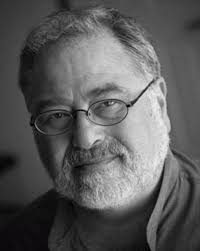As the country becomes more accepting of the civil rights of its lesbian, gay, bisexual, transgender and queer (LGBTQ) Americans, it is also beginning to reexamine its language used to demeans us.
In last month’s New York Time’s article “The Decline of the ‘H’ Word” Jeremy Peters wrote that while the word “homosexual” for the most part is “inoffensive,” “outdated,” and perhaps “innocuous”, the word nonetheless is viewed by many in our LGBTQ community as a pejorative term.
Gay and Lesbian Alliance Against Defamation (GLAAD) has had the word on its list of “offensive terms to avoid” for years stating, “These constructions-‘homosexual relations/relationship,’ ‘homosexual couple,’ ‘homosexual sex,’- are frequently used by anti-gay extremists to denigrate gay people, couples and relationships”
George P. Lakoff, a professor of cognitive science and linguistics at the UC, Berkeley couldn’t agree more. According to Lakoff, many still associate the word “homosexual” with sexual deviance, the preferred terms are “gay” and “lesbian.”
“Gay doesn’t use the word sex,” Lakoff said. “Lesbian doesn’t use the word sex. Homosexual does. It also contains ‘homo,’ which is an old derogatory.”
I abhor the word “homosexual” because it continues to be used by faith communities today to demean and denigrate LGBTQs—although the word never appeared in the Bible until its 1946 translation. And while there have always been words in the original Greek New Testament scriptures for same-sex activities no condemnations appear that it’s an abomination to God.
However, for many African Americans, the terms “gay” and “lesbian” are as offensive as the word “homosexual.”
For many African Americans, we use terms like “in the life”—an identifier, a code, that derives from the Harlem Renaissance. Another is the term “same-gender loving” that became popular in our LGBTQ lexicon in the 1990’s.
For many, terms like lesbian, “queer” and “gay” are not descriptors use to depict themselves because they uphold a white queer hegemony that many in the African American LGBTQ community denounce. Also for many, the terms strip African-American LGBT people of our particular history, struggle and spirituality that not only renders us invisible, but it also renders us speechless.
Cleaning up homophobic language has extended beyond our borders.
Last year, and to the surprise of many across the globe, Mexico stepped forward to define and reduce homophobic hate speech. Two commonly used words—”punal” and “maricones” — were the main targets. Both words closely translate as “faggot.”
In a vote of 3-2, Mexico’s Supreme Court ruled that these two homophobic hateful slurs are not legally protected in the country’s constitution as freedom of speech. The Supreme Court further ruled that any citizen offended by these words now could seek redress by suing for moral damages.
“Even though they are deeply rooted expressions in Mexican society, the fact is that the practices of the majority of society can’t validate the violations of basic right,” the Court wrote in support of its ruling.
But as most LGBTQ Latinos know, these two homophobic epithets are so frequently and easily espoused throughout Latin American culture that many are not cognizant of their deleterious effect.
Case in point: Toronto Blue Jays shortstop Yunel Escobar was suspended in September 2012 for three games for wearing eye-black displaying a homophobic slur written in Spanish during a game against the Boston Red Sox.
“It didn’t have significance to the way that’s being interpreted right now,” Escobar emphatically stated through a Spanish interpreter. “That’s not the significance that I put into it. That’s a word used often within teams. It’s a word without meaning, the way we use it.”
Escobar, a native of Cuba, contested that the phrase is taken out of contest because used in his culture it is not intended to be offensive; it’s merely used as banter in their friendly repartee.
The word is used frequently here, too.
Just last year, Alex Baldwin, hurling anti-gay epithets in a cussing tirade against the vulturous paparazzi on his heels spewed out the slur “c**ksucking f*ggot.”
Although Baldwin emphatically refuted using the “F- word” he didn’t deny using the word “c**ksucking,” claiming that he simply had no clue that the word is a homophobic slur.
Homophobic epithets are so pervasive across our culture that most good-hearted and well-intentioned heterosexual people like Baldwin are sadly unaware of the psychological and physical toll that these words have on LGBTQ people. Too often these cavalierly used epithets go either unchecked or unchallenged as the hate speech that they are.
However, sometimes in our effort to clean up language we can go too far.
In 2012, the editors of “The Associated Press Stylebook” announced that they were “discouraging” use of the word “homophobia.” (The “AP Stylebook” is the widely used guide that media use to standardize terms and general usage.) The LGBTQ community was in a kerfuffle about it because the editors made their decision without consultation with the nation’s leading LGBTQ organizations, leaders, activists and newspapers.
With an estimated 3,400 AP employees in bureaus around the globe, the AP’s suggestion could have had a tsunami-like effect on how the world comes to understand, be informed about or dismiss discrimination against (LGBTQ) people. AP’s online Stylebook defines a phobia as “an irrational, uncontrollable fear, often a form of mental illness” and said words such as “Islamophobia” and “homophobia” therefore should be expunged from political and social contexts.
The word “homophobia” derives from the unique history of LGBTQ people and our shared struggle for civil rights across the world. It has become part and parcel of a universal LGBTQ lexicon that accurately reflects our reality. The phenomenon of homophobia has power and unfortunately deleterious effects, but part of our liberation is in our strength to call out acts of homophobia. If the press eliminated use of the word, that would not only diminish people’s chances of understanding homophobia’s wide-ranging effects but would diminish the reach of LGBTQ activists in our continued efforts to effect change.
